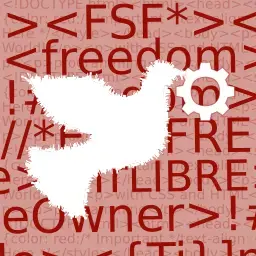

Thank you for bringing more awareness of this. I’m what you might call an “AI skeptic” and don’t really care what happens in the AI space as long as it doesn’t screw up things I care about.
But I care deeply about FOSS and AI is screwing it up. I don’t want to have to explain why XYZ thing absolutely is not Open Source and that “Open Source” has a specific meaning beyond “you can look at (at least some of) the source code.”
(Compare it to the term “hacker” that has among at least a lot of muggles taken on the exclusive meaning of committing some kind of fraud with computers. Originally it meant something very different. And it’s unfortunate the world has forgotten the old meaning.)
Another project that is diluting the term “Open Source” is Grayjay, a video streaming app that is a FUTO project (and FUTO is a Louis Rossman thing.) Rossman has called it Open Source in YouTube videos, but it’s not Open Source. (The license is here and forbids things like “commercial use” (selling the software or derivative works) and removing facilites for paying the FUTO project from derivative works. Which is a lot less restrictive than the license was last time I checked it. Previously it didn’t allow redistribution or derivative works at all. But it’s not Open Source even now.)










Seems like the sort of thing that Nintendo will want to shut down. There are legal loopholes that can be taken to avoid copyright infringement in such cases (such as releasing a game engine without any reasources/assets a la the Super Mario 64 decompilation project), but it doesn’t look like this SM64-on-GBA project is doing anything like that. (Which is unfortunate. Other projects like the Link’s Awakening PC port that got shut down not too terribly long ago also didn’t take precautions.
Don’t get me wrong. I hope this project sees the light of day. I just don’t think Nintendo will let it. And I wish the creators of these sorts of projects would take the necessary precautions to avoid being shut down on copyright grounds.